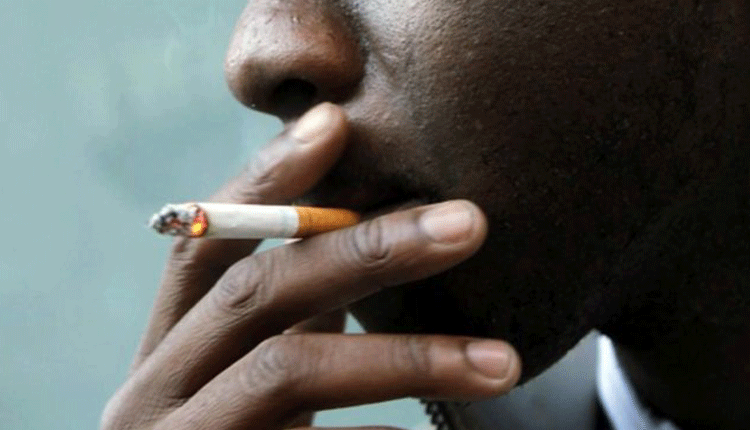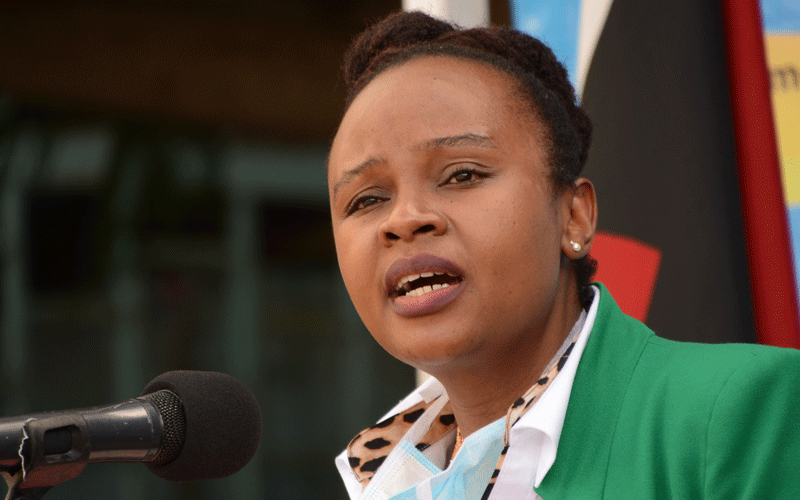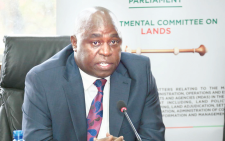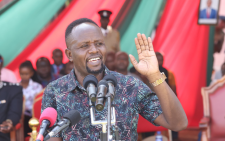Reports accuse BAT of bribing African leaders

Two new reports claim that African leaders, law enforcement agents and journalists are among the people bribed by British American Tobacco (BAT) to allow it to undermine health policies on the continent, monopolise tobacco markets, and endanger people’s lives.
The reports – one on the company’s activities in several East and Central African countries and another on its aggressive tactics in South Africa—showed that BAT appeared to be operating “as if it were above the law” while selling cigarettes to Africans.
Cigarettes are famous for causing tobacco-related diseases, death, and economic harm in Africa and worldwide.
At a webinar to discuss the ‘tactics’ used by BAT and other firms in conducting their businesses on Tuesday, experts accused BAT of committing various infractions against Africans.
Stopping Tobacco Organisations and Products (STOP) sponsored the reports and also organised the webinar.
The organisation said evidence appeared to connect BAT to hand-delivered cash, cars, per diems and campaign donations to dozens of politicians, civil servants, journalists, and people working at competitor companies.
Experts positions
A statement mailed to The ICIR after the meeting also reinforced experts’ positions at the webinar.
STOP said two new analyses of whistleblower documents and court records by the Tobacco Control Research Group at the University of Bath, published by STOP, suggested that BAT allegedly used payments to dozens of individuals and potentially unlawful surveillance to “tighten its already crushing market grip on Africa.”
The organisation said the reports revealed how BAT ran a mass surveillance operation and informant network in South Africa and made questionable payments totalling $600,000 in 10 other African countries
It said the payments might have helped the firm to secure influence on key African countries’ health policies.
It alleged further that analysis of whistleblower documents connected to BAT’s work in East and Central Africa revealed evidence of questionable payments made in Burundi, Comoros, the Democratic Republic of Congo, Kenya, Malawi, Rwanda, Sudan, Tanzania, Uganda and Zambia.
Researchers identified 236 payments made by BAT between 2008 and 2013, totalling $601,502 that were allegedly used to try to influence policy and sabotage competitors.
According to the organisation, BAT paid more than $28,500 to sources within the Kenya Revenue Authority and over $38,500 to an unnamed former justice minister, allegedly in exchange for intelligence and assistance with BAT’s efforts to prevent a rival company – SICPA- from winning the tender over Codentify.
BAT also bribed the chair of a Ugandan parliamentary committee with $20,000 to allegedly ‘amend’ a report related to an investigation into Continental Tobacco Uganda, STOP noted.
Illegal activities
The company doled out $110,000 to an executive of Leaf Tobacco and Commodities Ltd. of Uganda, allegedly in exchange for evidence of potentially illegal activities.
It gave about $56,000 to a private contractor, allegedly to covertly establish a trade union and orchestrate labour unrest at a competitor, Mastermind Tobacco Kenya. “The effort was dubbed ‘Operation Snake,” STOP said.
BAT also allegedly funded a whistleblower group ‘Operation Deep Jungle,’ to establish a permanent informant at a rival company, Japan Tobacco International.
Reacting to the reports’ findings, President, of African Tobacco Control Alliance Akinbode Oluwafemi, said: “BAT’s behaviour is a reminder of the tobacco industry’s deep colonialist roots, showing contempt for African laws, business and trade and the health and well-being of Africans. Then and now, the tobacco industry seeks to exploit Africans for its profit with no consideration for the harm it causes.”
Similarly, Senior Researcher at Tobacco Control Research Group at the University of Bath Andrew Rowell, a STOP partner, said: “Our analysis shows that BAT’s potentially corrupt practices in Africa were not just the work of a few bad apples.”
He added: “The geographic spread of the activity, the infrastructure used, and the number of senior staff involved suggest that BAT’s payments were routine, with the evidence trail frequently leading back to BAT’s London headquarters. This is not the kind of company any government should leave unregulated or fail to investigate.”
STOP is a global tobacco industry watchdog whose mission is to expose the tobacco industry strategies and tactics that undermine public health.
It is funded by Bloomberg Philanthropies and comprises a partnership between The Tobacco Control Research Group at the University of Bath, The Global Center for Good Governance in Tobacco Control (GGTC), the International Union Against Tuberculosis and Lung Disease (The Union) and Vital Strategies.
BAT says its ambition is to have 50 million consumers of its non-combustible products by 2030 and generate five billion pounds of new categories revenue by 2025.
As of 2020, the firm had over 53,000 employees in its over 180 countries’ offices, 11 million points of sale and 45 factories in 43 markets.
In 2020, BAT had 13.5 million consumers of its combustible products, a rise of three million on the previous year.
The group generated £25.8 billion in revenue in 2020 and £9.9 billion profit from its operations.
Combustible products
The firm paid £41 billion as major taxes within the year, and it had over 150 million daily consumer interactions.
BAT is the world’s third-biggest producer of cigarettes. It controls 12.2 per cent of the international cigarette market.
It comes behind China National Tobacco Corporation (CNTC), run by the Chinese government and Philip Morris International (PMI).
CNTC is the world’s single largest producer of cigarettes. The company produces nearly 44 per cent of global cigarettes.
PMI controls about 14 of the global cigarette markets, according to Campaign for Tobacco-free Kids.
When contacted via mail for reaction on Tuesday, the BAT media team referred our reporter to a statement it had issued a day earlier on its website on the allegations.
The organisation denied all the claims and said it had worked within the limits of laws where it ran its businesses. – Agencies









